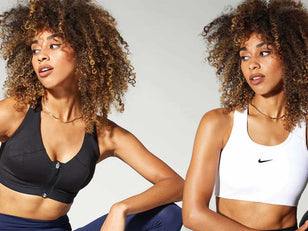
If there was a magic pill that meant you’d be in fantastic shape with no negative side effects, would you take it every day?
If you said yes, you might be kidding yourself.
Have you ever bought a supplement that’s ended up in the cupboard collecting dust, because you never remember to take it? I know I have. In fact, I’ve got a pot of vitamins by the kettle right now that fall under that category. They rarely move. They rarely get opened.
And it’s not just those of us trying to be a bit healthier that are inconsistent with this. In the medical industry, the compliance of patients taking life-saving medication is only 55%! That’s right, people who have to take a pill to survive only do so half the time.
Anyway, as far as I’m aware the magic pill isn’t on the horizon anytime soon (and if it ever gets made, it had better taste of Calpol). So in the meantime, what should we really be doing to improve our health?

Small lifestyle changes, big results
In my last article, I spoke about the five-step formula to create habits out of your positive actions. in short, the takeaway message was that we need to tackle things one at a time so that we can make our changes stick. After all, long-lasting results are ultimately what we want.
Subsequently, the whole process should begin by asking yourself the question: "What's the one thing I can do right now that will have the biggest impact on my health?"
This allows you to make the biggest step forward straight away. But maybe you’re unsure what that one thing is?
So where do I start?
If you feel that way, begin by asking yourself some other simple questions:
- Am I eating roughly the right amount of food for my goals?
- Am I eating at least five servings of fruit and vegetables every day?
- Am I drinking enough water?
- Am I regularly sleeping 7-8 hours per night?
- Do I have a form of regular activity or movement in my life?
- Do I have a health-focused kitchen – one that allows healthy choices to be made more easily?
All of these things are fundamental for living a healthy, active lifestyle. But how many of them can you honestly say you’re doing consistently?
Go back to basics
I describe these as Level 1 strategies; they are the things that if done well and consistently, will be enough for you to be in decent shape and feel great.
We can can have incredible success and make amazing changes to our health by consistently doing very simple, easy, do-able nutrition habits. Most of the time, Level 1 strategies are all we need.
However, all too often trainers, media and marketing duped us into focusing on too many Level 2 and 3 strategies. These include things like calorie counting, macronutrient ratios, carb cycling (which isn’t riding your bike while eating pasta!), periodised training programs and performance-enhancing supplements.
Complex goals inevitably lead to failure
These Level 2 and 3 strategies are only needed by high-performance athletes or people getting photoshoot ready. The rest of us don’t need to have that level of discipline and knowledge to achieve what we want, unless you want an Olympic medal or to appear on the cover of Men’s or Women’s Health.
Usually, trying to do these complicated levels just leaves us feeling confused, stressed out and ultimately like we’re ‘failing’. But the good news is, you don’t need to overhaul your life to see results.
Go back to basics and get good at doing those basics regularly and consistently. Make life simple for yourself. Use the knowledge and experience you already have to improve one area listed above.

What changes get results?
It is generally accepted that about 80% of body composition and body change comes down to nutrition, while exercise is responsible for the other 20%. That means you can make some awesome progress without having to step foot inside the gym. Ever heard the phrase “you can’t out-train a bad diet”? Well, that’s where it comes from.
Start with a goal around your nutrition. For example:
- Could you eat your meals more slowly because you’re always the first one to finish a meal?
- Could you reduce your portions a little to ensure you’re not overeating?
- Could you put more veggies on your plate?
- Could you start your day with a protein-based breakfast to stop mid-morning and mid-afternoon sugar cravings?
- Could you start your day with a pint of water before eating or drinking anything else?
Whatever the change, make it achievable. The decent plan you follow is better than the perfect plan you don’t. Pick one area and focus on it for at least a couple of weeks. Make it happen. Make it a habit. Make it what you do without thinking about it.
What are you willing to sacrifice?
To make any change to our health or bodies requires a trade-off. To say yes to one thing will almost certainly mean saying no to something else. The bigger the change you want to make, the bigger the trade-offs become.
Want to say yes to getting more sleep so you have more energy every day? Then you’ll probably need to say no to that extra episode of <insert your current favourite hit show on Netflix> in the evenings.
Want to say yes to fat loss? Then you might have to say no to that glass of wine most evenings during the week.
Want to say yes to feeling strong and fit? That involves getting your workout done regardless of the weather or social invitations etc.
Everything has a trade-off. Understand what the trade-off is and then you can make a conscious choice as to whether it is what you truly want and are willing to do, with no regret or self-loathing.
Be comfortable in that choice. Be compassionate about the amazing person you are, not the perfect person you think you should be.
Goal-setting checklist
- Be realistic
Make sure any lifestyle changes are ones that you can stick to
- Create habits
Small nutritional changes, when done consistently, will see big, long term results
- Be happy
Be kind to yourself and make your choices and your changes a happy experience
- Write down your goals
Journal your progress to make your goals more tangible
- Tell someone
Tell a supportive friend, partner or family member about your goals to get some extra accountability
CONCLUSION
You’ve got this. Believe in yourself. Start small and build a foundation of habits and actions that will work for you in the long-term.
UP NEXT:
Want to get in shape? The 5 step formula that works >





























































